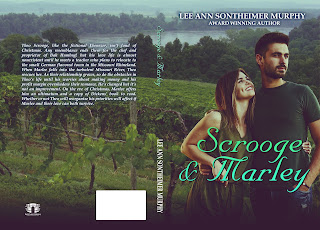When most Americans think of Missouri, the Gateway Arch comes to mind. Other landmarks they might find familiar include Arrowhead Stadium where the Kansas City Chiefs (including Patrick Mahomes) play, 1800's style theme park Silver Dollar City tucked into the Ozark hills near vacation destination Branson, or the Bass Pro Mega store in Springfield. There's another part of Missouri, however, that brims with history, scenery, and German culture. The Missouri Rhineland includes the city of Hermann, founded by immigrants from Germany in the 1850's.
Hermann offers a delicious taste of both German culture and cuisine. In the historic district paralleling the river, visitors can almost believe they're in Europe. In the hills surrounding town, multiple vineyards, some owned by the same family for generations, can be found. In Hermann and just outside, ten wineries can be found as well as five distilleries and two breweries. Several restaurants serve authentic German cuisine and there are multiple festivals each year including Oktoberfest.
My latest novel, Scrooge And Marlee, is set in Hermann. I chose Hermann because it's one of my favorite destinations within my home state. With a blended heritage that includes German, I enjoy spending time immersed in the culture. Hermann is also home to many quaint bed and breakfasts, inns, and hotels.
As readers may guess from the title, there's a tie to my favorite Dickens tale, A Christmas Carol and old Scrooge, the literary world's favorite miser who has a change of heart after being visited by three ghosts.
Here's the blurb that will offer some insight into what my story is about:
Theo Scrooge, like the fictional Ebenezer, isn’t fond of Christmas. Any resemblance ends there for the chef and proprietor of Bah Humbug! but his love life is almost nonexistent until he meets a teacher who plans to relocate to the small German flavored town in the Missouri Rhineland. When Marlee falls into the turbulent Missouri River, Theo rescues her. As their relationship grows, so do the obstacles in Theo’s life until his worries about making money and his profit margin overshadow their romance. He’s changed but it’s not an improvement. On the eve of Christmas, Marlee offers him an ultimatum and a copy of Dickens’ book to read. Whether or not Theo will reorganize his priorities will affect if Marlee and their love can both survive.
Most of my novels, usually begin with a "what if?" question. Scrooge and Marlee is no different. One day, because I am a devoted fan of Dickens, I wondered what if someone had the surname Scrooge now, in the 21st century. And, what if that individual had been teased about it throughout his life, to the point he loathes the story and has refused to read it or watch one of the many movies based on the books. Then, I added to the intrigue by thinking what if he got a little miserly himself, so much that it affected his love life.
That inspired me to write the two opening paragraphs and then the story grew from there…
" He wasn't old and most of the time he wasn't cranky but in one way he was like the fictional Ebenezer - Theo Scrooge disliked Christmas. He hadn't always - as a child, he'd loved the holiday with all the traditions and trimmings, but as he grew up, that changed.
Theo didn't care much for Charles Dickens, either. In lit classes, he'd been forced to read classics like Oliver Twist and A Tale of Two Cities, but he balked at reading A Christmas Carol, taking a F on a class assignment in high school which brought his grade down by a full letter.
He wished the author had chosen any other surname for the miserly old character who had a life changing revelation after three ghosts came to set him straight. If Dickens had just called him Ebenezer Smith or Sands or Sims, things would have been different for Theo."
https://www.amazon.com/dp/B0B4B3VQC3
https://www.barnesandnoble.com/w/scrooge-marlee-lee-ann-sontheimer-murphy/1141663786
https://www.smashwords.com/books/view/1151986
https://www.kobo.com/us/en/ebook/scrooge-marlee
https://books.apple.com/us/book/scrooge-marlee/id6442997521
https://play.google.com/store/books/details?id=85l1EAAAQBAJ&hl=en_US&gl=US



